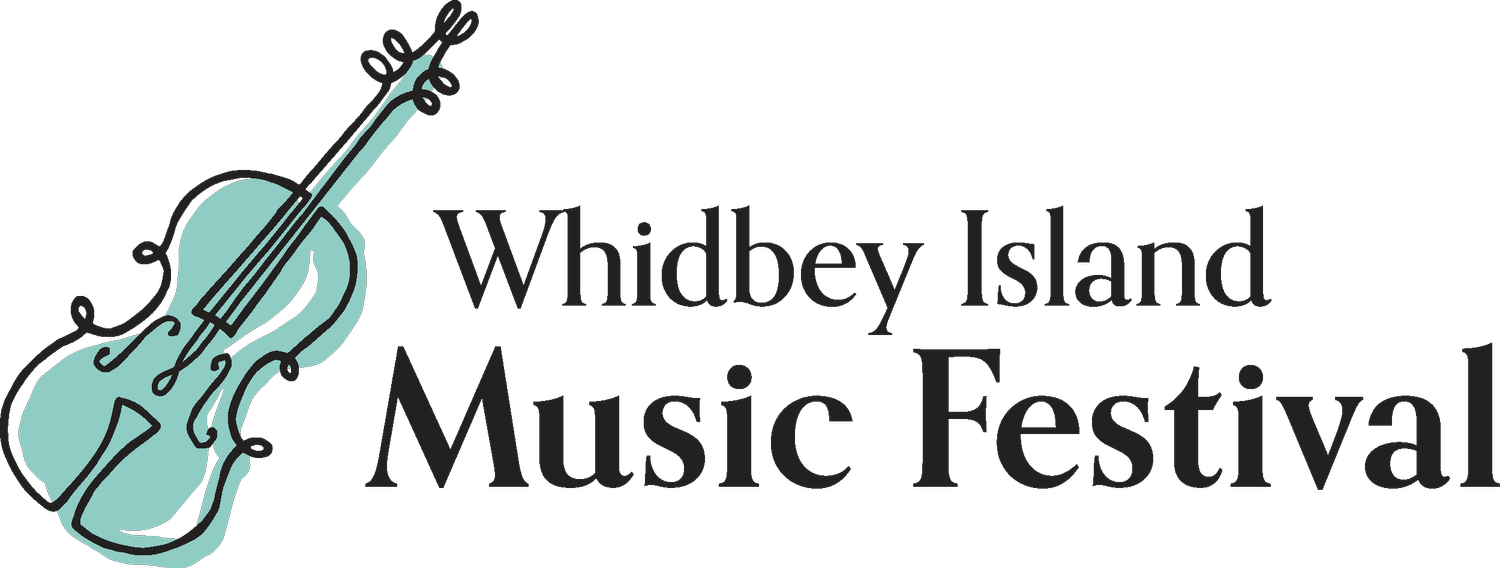Program Notes for the Influencers
Few people would dispute that Johann Sebastian Bach was one of the 18th century's greatest musical minds. However, Bach's place in musical history has been distorted by the 19th century romantic notion of the solitary genius, toiling in his organ loft producing some of Western Europe's greatest musical works while slowly transforming into a plaster bust in a powdered wig, eventually taking his place alongside Mozart, Beethoven, and Brahms in the vaunted halls of the Classical canon. Nothing could be farther from the truth. The genius that was Bach was also a gregarious and garrulous man, a family man, a loyal and devoted friend, and a lifelong learner who, though spending most of his life in an area of Germany roughly the size of the state of Connecticut, was connected through music to most of the greatest musicians of his time.
Sebastian was born into a musical family for the ages, in a region of Germany where the word 'Bach' was almost synonymous for 'musician.' By the year of his birth, Bachs had been making music in Thuringian towns and villages large and small for over three generations, and the exchange of ideas (not to mention genetic material) had created a distinct regional musical style, rich in profound feeling and learned counterpoint, but also isolated from the centers of musical taste and fashion, notably the great Italian cities, Paris, and the publishing hub of Amsterdam. It was Sebastian's generation of Bachs who broke the provincial musical boundaries, and they did so in a spectacular way.
Like most of his kin, Johann Sebastian Bach's earliest musical education came from within the family, namely his older brother. After his brother's death, the 15-year-old Sebastian traveled to Lüneberg, where he lived and studied with Georg Böhm, the Francophile organist at Lüneberg's Johanneskirke, whose own teacher studied with both Heinrich and Johann Christoph Bach. Böhm's keyboard style influenced the young Sebastian, both in Bach's adoption of Böhm's signature chorale partita form as well as integrating characteristically French instrumental idioms into his keyboard writing. French music would continue to play a significant role in Bach's musical life. According to his sons, he could play Louis Marchand's harpsichord suites from memory, and he carefully copied out and studied the harpsichord works of Louis Couperin and the organ music of Nicolas de Grigny, incorporating French elements into his chorale preludes as well as his suites for solo harpsichord.
In 1705, the 20-year-old Sebastian took a little holiday from his church job in Arnstadt to walk 280 miles (roughly the distance from Seattle to Spokane) to listen to and study with Diderich Buxtehude in Lübeck. He said he’d be gone four weeks. He stayed four months. When he returned, he quit. Or got fired. One of the two. In any case, it was worth it. Buxtehude was the most highly renowned of all the North German organist composers and the most successful in translating the extravagantly improvisational Stylus Fantasticus most often associated with the violin and viola da gamba, into the world of organ music. While Buxtehude's chamber music output is modest in comparison with his works for organ, it is no less creative and engaging, as the sonata on today's program demonstrates.
In 1708, Bach took a position at the Weimar court. The duke loved Italian music, and his library was full of works by the leading modern masters, including Vivaldi, Corelli, Albinoni, and Torelli. Bach studied the works of those composers with great intent, transcribing many of their violin concerti for solo keyboard and incorporating their rhythmic vitality and sunny virtuosity into his own music in new and novel ways.
A largely self-taught child prodigy, Georg Philipp Telemann composed his first opera at age twelve and received composition lessons from one of the local organists, who, unlike his family, encouraged his music studies. In addition to organ, Telemann taught himself to play oboe, flute, violin, viola da gamba, recorder, and several other instruments before moving to Leipzig to go to university. During his student years, he not only founded and directed the student orchestra known as the Collegium Musicum (a position later held by Johann Sebastian Bach), wrote cantatas for Leipzig's major churches (also later done by J. S. Bach) as well as became music director for Leipzig's municipal opera house (not later done by J. S. Bach.) After Leipzig, he went on to hold positions in Eisenach (J. S. Bach's hometown) and Frankfurt before settling in Hamburg in 1721, becoming director of music for the city's five largest churches and a driving force behind much of the secular music in the city, where he would remain for the rest of his life.
Telemann's influence over Baroque music cannot be underestimated. His mastery of combining German, Italian, and, after an extended stay in Paris in 1737-1738, French musical styles resulted in music which captivated its listeners and impressed composers across the continent, collected, studied, and imitated by no less than Handel and J.S. Bach, who copied and studied his scores and performed many of his works over his own career in Leipzig. Telemann was also one of the most prolific composers in Western musical history, writing an estimated 3000+ compositions. That coupled with an incredibly savvy business sense led him to ride the surge of demand for published music for amateur performers in the newly burgeoning middle class, self-publishing a monthly music magazine as well as many other works for both amateur and professional-level performers. He died a wealthy man and was succeeded in his prestigious position in Hamburg by his godson, Carl Philipp Emmanuel Bach, son of his friend and pen pal, Johann Sebastian.
Program Notes by Henry Lebedinsky
